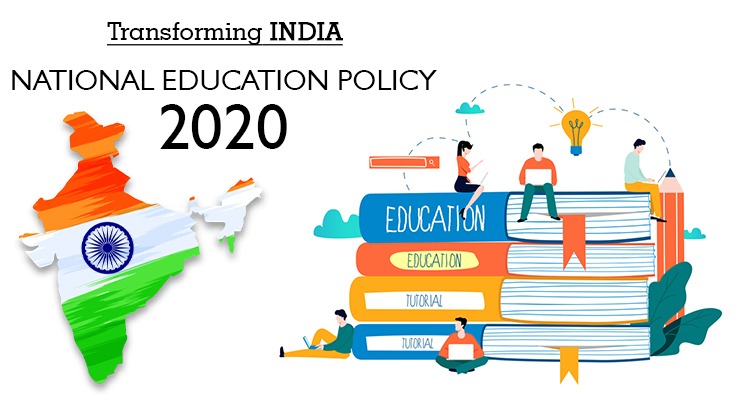National Education Policy 2020
Bholanath Patraa
3/7/20252 min read


Understanding NEP 2020: A Transformative Shift in Indian Education
The National Education Policy (NEP) 2020 marks a historic overhaul of India's educational landscape, replacing the 34-year-old National Policy on Education, 1986. The NEP 2020 aims to create a holistic, flexible, multidisciplinary education system that aligns with the needs of the 21st century, fostering critical thinking, creativity, and innovation.
Key Highlights of NEP 2020
School Education Reforms:
The traditional 10+2 structure is replaced with a 5+3+3+4 curricular structure corresponding to the age groups 3-8 years (Foundational Stage), 8-11 (Preparatory Stage), 11-14 (Middle Stage), and 14-18 (Secondary Stage).
Emphasis on Early Childhood Care and Education (ECCE) to build strong foundational literacy and numeracy.
Introduction of multilingualism: Students are encouraged to learn in their mother tongue or local language up to at least Grade 5.
Higher Education Reforms:
Establishment of Multidisciplinary Education and Research Universities (MERUs) to set global standards.
Flexibility in choosing subjects across disciplines, breaking the rigid boundaries of Arts, Science, and Commerce.
Introduction of a 4-year undergraduate program with multiple exit options — a Certificate after 1 year, Diploma after 2 years, Bachelor’s degree after 3 years, and a Bachelor's with Research after 4 years.
Setting up of Higher Education Commission of India (HECI) for regulation, excluding medical and legal education.
Skill Development and Vocational Training:
A strong push towards vocational education starting from Grade 6, integrating internships to bridge the gap between academics and real-world skills.
Focus on coding, AI, and digital literacy to prepare students for future jobs.
Assessment and Evaluation:
Shift from rote learning to competency-based assessments.
Introduction of the National Assessment Centre — PARAKH to set standards for student evaluations.
Technology Integration:
Use of EdTech platforms for online learning and blended education.
Creation of the National Educational Technology Forum (NETF) to promote technology use in all levels of education.
Impact of NEP 2020
The NEP 2020 is a visionary step towards universalizing education and ensuring equity and inclusivity. It aims to achieve a 100% Gross Enrollment Ratio (GER) in school education by 2030 and raise the GER in higher education to 50% by 2035.
Furthermore, the policy seeks to instill ethical values, environmental consciousness, and global citizenship among students, preparing them to be well-rounded individuals who can contribute positively to society.
Conclusion
NEP 2020 is not just a policy but a paradigm shift in India’s educational framework. It paves the way for a learner-centric, skill-oriented approach that aligns with global standards while preserving India's rich cultural heritage. As we move forward, the success of this policy lies in its effective implementation, requiring collaboration between the government, educators, and society at large.
The future of education in India looks promising, and NEP 2020 is the cornerstone of this transformative journey.
Welcome
Experience the best in English medium primary education.
Contact
info@kautilyasmart.com
9100338555
© 2015. kautilya smart learning school. All rights reserved.
Chakapad
Bellaguntha
9348707715
